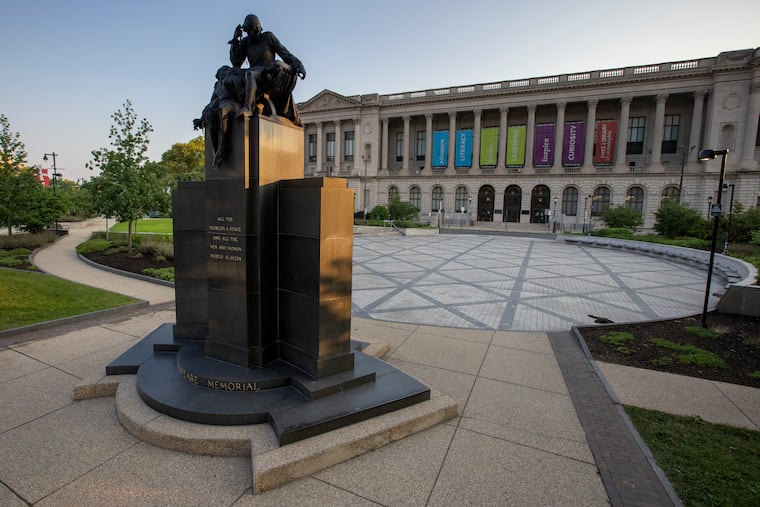Telling Philly libraries to ‘Shh!’ is not the move, city discovers
The city walked back on its social media approval requirement for Philly libraries, according to social media posts from libraries.

There are a few things you don’t mess around with in Philly — an Eagles fan on a bad day, SEPTA workers on a good day, and our librarians on any day. They’ve all seen some stuff and don’t have any time for yours.
Mayor Cherelle L. Parker’s administration learned that the hard way this week when they informed the Free Library of Philadelphia’s branches that the administration’s new communications policy — which requires that all publicly-disseminated information, including social media posts, first be vetted by the Mayor’s Office — would apply to them too.
Does the city really think its librarians have never read 1984?
In what appeared to be a cunning and clever retort on Monday, the day before the policy was set to take effect, library branches across the city posted the same seemingly-benign message, that going forward “all fliers, social media content, and newsletters must be approved by the Mayor’s Office.”
The posts asked residents to “please bear with us” as the library staff navigated these changes, since their updates about operating hours, unforeseen closures, and, you know, announcements about readings of Stuart Little, had to be vetted now.
Almost immediately, Philadelphians let out a collective “What the?!?” Not only did they bear with the librarians, they bore down on city government, asking questions like “What in the bureaucracy?” and “Is the mayor really trying to censor libraries now? (skull-face emoji).”
(At least one New Yorker also used the policy as a burn on Philly, noting on social media that while their mayor “sucks [a word that can’t be printed]” at least New York “libraries are free to tweet that ... and do.”)
The people of Philly, who know what our underfunded librarians suffer, had librarians backs, and, as a result, the city appears to have backed off on its policy.
On Wednesday morning, branches like the Fishtown Community Library posted that they’d received word they could continue to communicate with the public as they always have, including on social media.
“This change came about because city workers and residents know how important communication and relationships are and how to fight for what we deserve,” the Fishtown branch’s post read, in part.
The Mayor’s Office did not immediately respond to requests for comment.
I’m glad the new administration listened to its citizens and librarians, but I’m worried that it had to get this far. Did they not think librarians would speak up? Did they not think Philly would too?
In her Tuesday column, my colleague Helen Ubiñas said the new communications policy — which extends to every city department — “should be cause to sound the alarm” and that the public and journalists aren’t the enemy.
The policy certainly makes it seem like the administration doesn’t trust the people who work for it or the people it serves.
If the city can trust librarians to provide safe spaces for our most vulnerable citizens, educate children, and administer Narcan, it sure seems like they should be trusted to write an Instagram post.
Since the Mayor’s Office didn’t immediately return requests for comment, it’s unclear if the policy reversal extends beyond the library system to other departments too.
Many of those departments have highly-trained (and probably well-paid) public relations professionals in place, who now have to run everything up a ladder to get approval from other (perhaps more highly-trained and more well-paid) public relations professionals.
It’s already hard to get a PR person for a government agency on the phone as a journalist. Since so many want to deal almost exclusively in email, it may now be nearly impossible in Philly. It really seems like everyone wants a paper trail instead of a real conversation, and that doesn’t feel very transparent.
Good communication is the key to any successful relationship, and that extends to our governments and the people they serve.
While government officials may — and often do — disagree with the public and journalists on what defines good communication, they shouldn’t be the only ones that get to define it, especially since they hold all the information.
If those who govern this city want us to put our trust in them, they have to put some in us too.